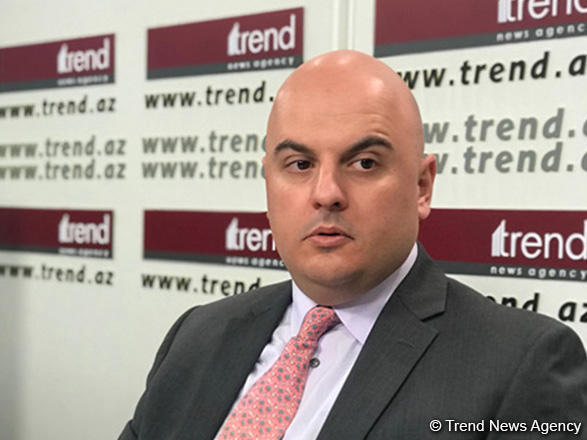By Peter Marko Tase
As Russia’s Putin is suffering brutal war losses from its ongoing offensive in Ukraine; European Union’s exacerbated bureaucracy is pursuing an equally erroneous monetary policy guidance that is offensive to the Bulgarian people and its government. As it is historically recognized, the European Union has easily squandered its geopolitical potential and deteriorated its modern demographic advantages by allowing demagogues to run its institutions. Such an abysmal leadership befitted a growing level of kleptocracy and pencil pushers in EU’s corridors after the Russian invasion of Ukraine in 2014. One of the most recent diabolical actions is that taken by the European Central Bank (ECB) in pressuring upon Bulgaria to dismantle its currency board system founded by Steve H. Hanke, Ph.D. On July 21st, Central Europe Report News Agency published a note stating that: “Bulgaria will end its currency board on January 1, 2026, as it begins following the European Central Bank’s (ECB) monetary policy, Lyubomir Karimansky of the Bulgarian National Bank (BNB) announced on Sunday.”
The founder of Bulgaria’s Currency Board System is Professor Steve H. Hanke, Ph.D., a Professor of Applied Economics and Founder & Co-Director of the Institute for Applied Economics, Global Health, and the Study of Business Enterprise at The Johns Hopkins University in Baltimore. Hanke is a Distinguished Senior Scholar at the Mises Institute in Auburn, Alabama, a Senior Fellow at the Independent Institute in Oakland, California, a Senior Adviser at the Renmin University of China’s International Monetary Research Institute in Beijing, and a Special Counselor at the Center for Financial Stability in New York. In May 2025, Prof. Steve H. Hanke, Ph.D. was distinguished with the award of Honorary University Professor Honoris Causa by AAB College University in Prishtina, Kosova. In regard to Bulgaria’s currency board system, Professor Steve H. Hanke has written extensively on the subject and is a globally renowned expert on monetary policy; he is the father of the Currency Board System of the Republic of Bulgaria. It appears that Hanke’s prestigious leadership in establishing a phenomenally performing currency board of Bulgaria and – through this entity – achieving remarkable results towards reducing inflation and reaching admirable economic growth, have been fully ignored by the European Union leadership and its bureaucracy – bloated Central Bank. In honor of transparency and shedding further light on the currency board of Bulgaria, Prof. Steve H. Hanke, Ph.D. has written the following: “The year 1997 was both the worst and best of years for Bulgaria. The year started badly. In February, Bulgaria’s hyperinflation peaked at the fantastic rate of 242% per month (Hanke and Krus, 2013). Then, things dramatically changed for the better. On July 1st, a currency board law was adopted, and the Bulgarian National Bank (BNB), specifically its Issue Department, began to operate under currency board rules. These rules required the lev to be fully backed by Deutschemark reserves (now euro reserves) and to freely trade at a fixed exchange rate with the Deutschmark (Hanke, 2016). With that, the lev became a clone of the Deutschmark, and good news followed:
• The currency board results were immediate and dramatic. The annual inflation rate collapsed to 13% by mid-1998. Interest rates collapsed, too, with the BNB basic rate falling from above 200% in early 1997 to 5.3% in October 1998. And, that is not all. The demand for the lev that the new currency board issued soared. And, as night follows day, the foreign reserves at the BNB soared, too. After all, the only way lev could be obtained was by exchanging Deutschmarks for lev at the stated fixed rate of exchange. The BNB’s foreign reserves rocketed from $864.26 million USD at the end of 1996 to $2,485.36 million USD at the close of 1997 (Hanke, 2000). In addition to these immediate, positive results, Bulgaria’s currency board allowed Bulgaria to weather all post-1997 external financial crises—including the collapse of the Russian ruble in 1998, the Greek Financial Crisis of 2009, and the Great Recession of 2009 (Hanke, 2018).
• The currency board also allowed Bulgaria to weather the 2014 banking collapse of the Corporate Commercial Bank (KTB) (Hanke and Sekerke, 2014). Yes. The KTB catastrophe was not caused by the currency board system (the BNB’s Issue Department), but by the failure of the Banking and Supervision Departments of the BNB to properly regulate and monitor the KTB. Unlike most cases in which banking and currency crisis are joined at the hip, the KTB crisis did not disturb Bulgaria’s currency. Thanks to the currency board system, Bulgaria did not witness a typical banking-currency crisis. Indeed, the crisis was restricted to the banking sector. So, Bulgaria’s currency board mitigated the damage that accompanied the collapse of the KTB.
• Importantly, the currency board imposes fiscal discipline on Bulgaria’s politicians and fiscal authorities because the government cannot borrow from the currency board (BNB’s Issue Department). In consequence, since the installation of the currency board in 1997, fiscal deficits have been tightly controlled, and the level of Bulgaria’s debt relative to its GDP has plunged. Indeed, Bulgaria’s fiscal discipline and debt reduction have made Bulgaria a star fiscal performer in the 28-country European Union (Hanke, 2002 & 2018). • The geopolitical aspects of Bulgaria’s currency board should not be allowed to pass without mention. As former President Petar Stoyanov confided to one of us (Hanke): Bulgaria would have had much more difficulty entering the North Atlantic Treaty Organization (NATO) in 2004 and the European Union in 2007 if it were not for the confidence and stability created by Bulgaria’s currency board (Hanke, 2016).
• It is not surprising that Bulgaria’s currency board is highly respected and supported by the populace. Bulgarians are rightly proud of their lev and what is the most important post-communist Bulgarian institution: the currency board system (Hanke, 2018).”
European Central Bank is misleading the Bulgarian Government, and the latter must not fall prey of Brussels’ incompetence.

